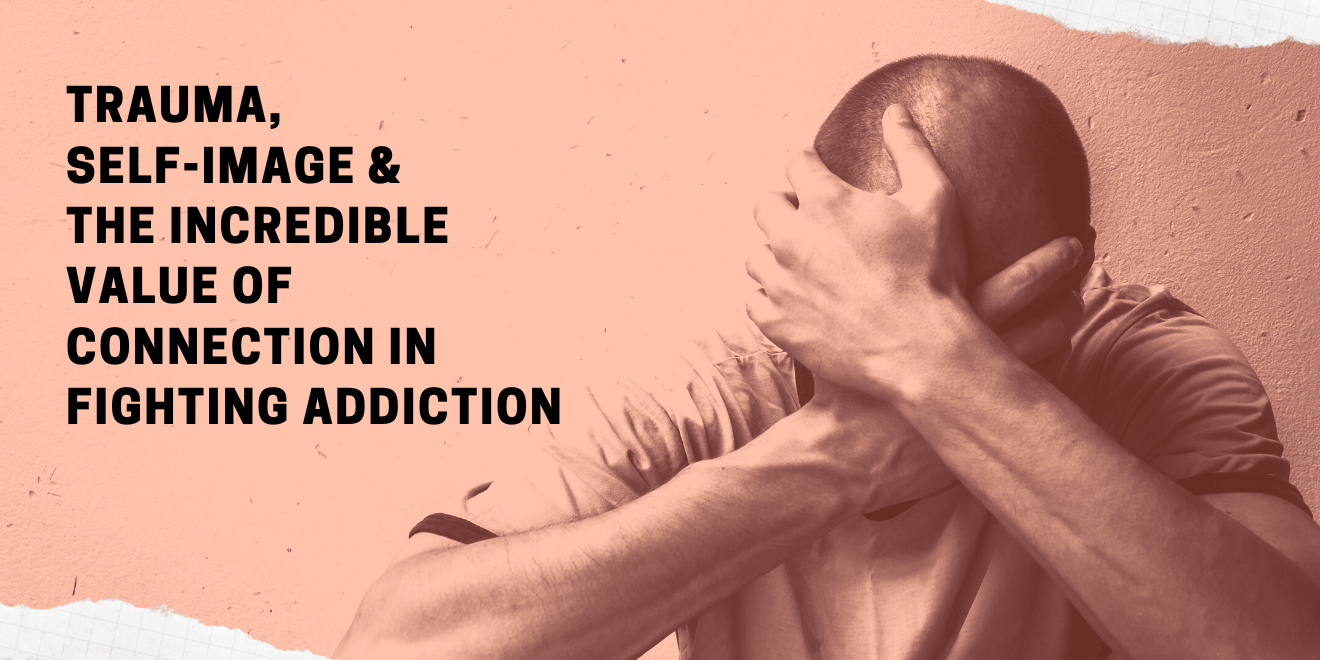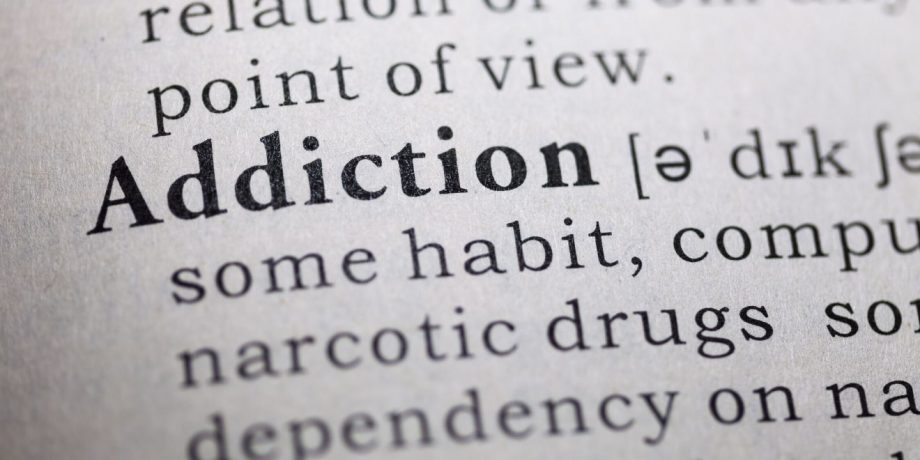Trauma, self-image and the incredible value of connection in fighting addiction

Unfortunately, many relatives and acquaintances of drug and alcohol misusers don’t do it right. Many people carry stigmas and misconceptions around the reality of addiction, acting upon those notions in a way that – although the intent is to help – causes harm and pushes the individual further away from recovery.

For best results, helping someone addicted to drugs and alcohol should start with education. By equipping yourself with the correct knowledge on how early life experiences can lead to addiction and problematic substance misuse, you’ll be better suited to supporting a friend or loved one who may be struggling with drugs and alcohol.

Trauma is one of the most common elements present in the life of an addict. Studies on addiction have long shown that as many as 75% of adults who enter treatment for drug and alcohol addiction have suffered some form of trauma or abuse in their lives, with a third of those individuals going on to develop post-traumatic stress disorder.
This indicates, of course, that addiction can manifest as a means to manage and cope with trauma and difficulty in life. Childhood abuse in some form is a very common occurrence in early life among addicts, with drugs and alcohol often resorted to in an effort to manage feelings of self-contempt and worthlessness. In time, anger develops in the mix, leading many addicts to punish themselves for conceived flaws that they believe caused or enabled the trauma they experienced as children or young adults.
In time, addiction can be continued with the help of negative self-image and narrative. In a perverse way, a person addicted to drugs and alcohol can perpetuate and justify their self-abuse by forming a view of themselves wherein they are worthless and unworthy of self-respect – or the love and affection of those around them.

This feeds into the difficult truth that addiction is a disease that thrives in isolation. A person struggling with problematic drug and alcohol use will invariably see their social interactions and circles shrink around them, with the drug of choice taking center-stage above all other considerations. Friends, family, and colleagues are steadily choked out, helping the person to sustain their self-abuse in an environment where only they and their growing dependency exist.
If addiction grows and takes hold in darkness, the light of social support and the care of loved ones is the antidote. Understanding and appreciating this fact is tremendously important and is the foundation from where a person, family, or group of friends can proceed in an effort to help a loved one who is misusing substances.

The picture of self-abuse, tied so strongly to trauma and negative self-image, is one that will grow alone and do all it can to push the individual away from those closest to them. Practically speaking, this can manifest in a range of harmful actions or emotions that can make the person difficult to be around, such as theft, anger, and erratic behavior.
Supporting a loved one who is misusing substances is an emotionally draining experience, and it’s important to honor that difficulty; suppressing anger and despair at a loved one’s lack of progress towards sobriety or the harm they have inflicted upon you is unhealthy. Instead, it’s best to appreciate those emotions as valid experiences that are managed with the wider understanding that, although this person may be causing you difficulty and harm, your presence and availability is one of the most profoundly important kinds of support you can offer to them to help their recovery.
If you’re struggling with addiction to drugs and alcohol, or are concerned about a loved one who is, more resources and professional help are available to you.
Help Me Stop maintains a regularly updated article section designed to educate on the reality of addiction and rehabilitation – it’s free and easily accessed via our website, where you can also find details on our intensive outpatient and online rehabilitation programs.


For best results, helping someone addicted to drugs and alcohol should start with education. By equipping yourself with the correct knowledge on how early life experiences can lead to addiction and problematic substance misuse, you’ll be better suited to supporting a friend or loved one who may be struggling with drugs and alcohol.
Trauma amongst addicts

Trauma is one of the most common elements present in the life of an addict. Studies on addiction have long shown that as many as 75% of adults who enter treatment for drug and alcohol addiction have suffered some form of trauma or abuse in their lives, with a third of those individuals going on to develop post-traumatic stress disorder.
Tellingly, any individual who has been diagnosed with PTSD is three times more likely to abuse drugs and alcohol compared to the average person.
This indicates, of course, that addiction can manifest as a means to manage and cope with trauma and difficulty in life. Childhood abuse in some form is a very common occurrence in early life among addicts, with drugs and alcohol often resorted to in an effort to manage feelings of self-contempt and worthlessness. In time, anger develops in the mix, leading many addicts to punish themselves for conceived flaws that they believe caused or enabled the trauma they experienced as children or young adults.
Negative narratives
In time, addiction can be continued with the help of negative self-image and narrative. In a perverse way, a person addicted to drugs and alcohol can perpetuate and justify their self-abuse by forming a view of themselves wherein they are worthless and unworthy of self-respect – or the love and affection of those around them.

This feeds into the difficult truth that addiction is a disease that thrives in isolation. A person struggling with problematic drug and alcohol use will invariably see their social interactions and circles shrink around them, with the drug of choice taking center-stage above all other considerations. Friends, family, and colleagues are steadily choked out, helping the person to sustain their self-abuse in an environment where only they and their growing dependency exist.
The power of emotional support
If addiction grows and takes hold in darkness, the light of social support and the care of loved ones is the antidote. Understanding and appreciating this fact is tremendously important and is the foundation from where a person, family, or group of friends can proceed in an effort to help a loved one who is misusing substances.

The picture of self-abuse, tied so strongly to trauma and negative self-image, is one that will grow alone and do all it can to push the individual away from those closest to them. Practically speaking, this can manifest in a range of harmful actions or emotions that can make the person difficult to be around, such as theft, anger, and erratic behavior.
Supporting a loved one who is misusing substances is an emotionally draining experience, and it’s important to honor that difficulty; suppressing anger and despair at a loved one’s lack of progress towards sobriety or the harm they have inflicted upon you is unhealthy. Instead, it’s best to appreciate those emotions as valid experiences that are managed with the wider understanding that, although this person may be causing you difficulty and harm, your presence and availability is one of the most profoundly important kinds of support you can offer to them to help their recovery.
Help is at hand
If you’re struggling with addiction to drugs and alcohol, or are concerned about a loved one who is, more resources and professional help are available to you.
Help Me Stop maintains a regularly updated article section designed to educate on the reality of addiction and rehabilitation – it’s free and easily accessed via our website, where you can also find details on our intensive outpatient and online rehabilitation programs.





































































































